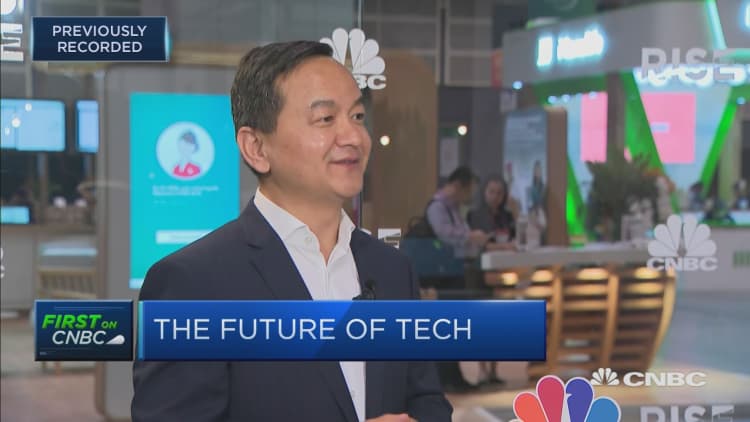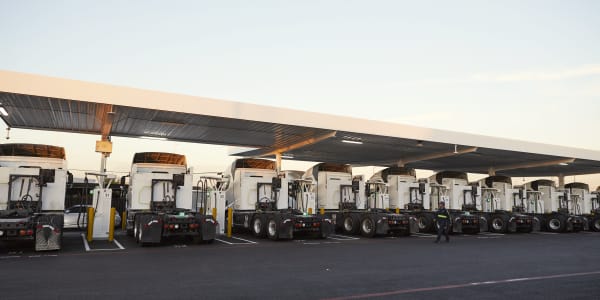Chinese ride-hailing giant Didi Chuxing ("Didi") has amassed more than 550 million users and 31 million drivers since taking to the streets of Beijing seven years ago. In the past three years, the global rideshare giant has devoted close attention to its autonomous driving unit. That unit became an independent company on Monday in a move designed to focus and designate more resources toward business development and product innovation.
The Uber-competitor established its autonomous driving team in 2016 and has since employed more than 200 people in China, as well as at its Mountain View, California research facility, where it has been working with various auto manufacturers like Volkswagen and Toyota Motors to test core innovative technologies.
Last month, Didi Chuxing received $600 million in corporate financing from Toyota, which includes directly establishing a joint venture with GAC Toyota, a joint venture between Toyota and a Chinese car maker. The new funds come as Didi continues heavy expansion in several new overseas markets, where it hopes to challenge Uber and other ride-hailing giants like India's Ola, Brazil's Easy Taxi and Singapore's Grab — a three-time CNBC Disruptor 50 company.
Didi Chuxing is also a notable Disruptor 50 company, breaking the top 10 at No. 4 in 2018 and No. 2 in 2019.
"Autonomous driving will greatly enhance the safety and efficiency of travel," said Didi Chairman and CEO Cheng Wei in a release. "In the future, people's transportation needs ... will be met by the combination of seamless autonomous driving technology and human driving services that are indispensable for their quality and warmth."
To fund the new driverless car company, Didi is in new talks with SoftBank, according to a report from The Information. The Japanese tech and telecom giant has previously made multiple, large investments in the ride-hailing company. Based on the most recent funding round, Didi Chuxing has raised $22.74 billion and is valued at $57.6 billion.
In 2016, the same year that Didi's autonomous driving unit was established, SoftBank played an influential role in Uber's decision to sell its China business to Didi, notably pushing the U.S. ride-hailing giant out of the region and exposing Didi to their customer base outside of China for the first time.
Investors want clearer profit path
Asad Hussain, a PitchBook analyst and an expert in mobility, ride-sharing and autonomous vehicles, sees the company's decision as part of a broader trend consistent with the challenges that self-driving technology presents.
"Spinning out autonomous divisions enables these companies to raise outside capital and offers investors a more targeted bet on self-driving relative to investing in the parent entity," he said. "We think this is a logical move for Didi and other ride-sharing companies facing pressure from investors to streamline costs and show a clear path to profitability."
Didi went through a major round of layoffs earlier this year, according to multiple reports, as it continues to lose money, like its competitors. Uber recently announced 400 job cuts in its marketing team.
Waymo, Alphabet's autonomous vehicle unit, also announced that it would raise outside capital for the first time this past March, positioning itself to cut costs and limit downside risks.
Didi's Chief Technology Officer (CTO) will head the new autonomous driving company as CEO. In an email to CNBC, a communications representative for Didi said that the company does not currently have plans for an IPO.
Uber and Lyft, the U.S. rideshare leaders with heavy investments in driverless vehicles, have fared poorly after highly anticipated IPOs earlier this year as investors doubt how quickly they can become profitable.

In a recent survey, auto and tech industry experts predicted it will be at least 12 years before fully autonomous vehicles are being sold to private buyers. While Tesla CEO Elon Musk says 1 million Teslas capable of being robotaxis will be on the road by the end of next year, industry experts say robotaxis will not be ready for widespread public use until 2025.
Last week, General Motors subsidiary Cruise, postponed a planned launch of an autonomous ride-share service as it continues developing, validating and making sure its self-driving cars are ready.
"What's most important when we do launch this service is that we do it the right way," Cruise CEO Dan Ammann said.







